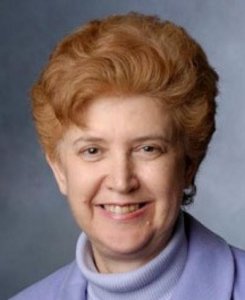
Alzheimer’s Protection? Appealing the death sentence for brain cells
A new drug candidate discovered by Tel Aviv University researcher Prof. Illana Gozes may lead to an effective treatment against the debilitative Alzheimer’s disease. This compound could also treat a number of diseases where patients suffer from cognitive deficits, such as schizophrenia and Parkinson’s, by limiting damage to the brain.
The new drug candidate, known as AL-108, was found to protect American patients with mild cognitive damage against memory loss by protecting the skeleton and transport system of brain cells. The new drug candidate has passed its Phase II clinical studies in U.S. Food and Drug Administration approved clinical trials. AL-108 is currently being developed by the Canada-based Allon Therapeutics Inc.

CREDIT: AFTAU
An Emphasis on Living Brain Cells
“My logic is that if you try to protect a dead cell, it won’t work. We need to protect the living cell between the death sentence of having Alzheimer’s and actual cell death,” says Prof. Gozes. Her discovery, now the drug candidate AL-108, provides nerve cell protection. Publications reporting on the efficacy of AL-108 in animal models have appeared in the Journal of Pharmacology and Experimental Therapeutics, Journal of Molecular Neuroscience, the Journal of Biological Chemistry and many more.
Prof. Gozes, a co-founder of Allon Therapeutics and the company’s Chief Scientific Officer, targeted support cells in the brain known as glia, which make up the majority of cells in the brain and are those that facilitate brain repair. She hypothesized that proteins produced by glia, and responsive to brain injury, may be able to repair the damage caused by neurodegenerative diseases such as Alzheimer’s.
Like Train Rails Without Ties
Prof. Gozes and her team discovered a protein (ADNP) involved in brain repair, but if developed into a drug it would be too large to cross the blood-brain barrier. Cutting the protein into fragments, Prof. Gozes determined a small portion of the protein (NAP) provides potent neuroprotection by protecting nerve cells against severe oxidative stress and the toxicity associated with diseases such as Alzheimer’s. AL-108, the drug candidate under development now, is an intranasal formulation based on NAP.
What happens in the nerve cells of Alzheimer’s brains can be likened to a derailed train, says Prof. Gozes. The nerve cell skeleton — the microtubules — are like the rails, and a protein called “tau” functions like the ties between the rails. In Alzheimer’s, the ties fall off, the tracks fall apart and nerve cells die. AL-108 however, seems to prevent this process from accelerating.
AL-108, which could be ready in as early as 5 years, targets the microtubules and protects against amyloid plaques — a characteristic of Alzheimer’s disease. AL-108 also seems to be able to maintain brain microtubule functioning, preventing memory loss and the deterioration of other cognitive functions, such as learning abilities, in those whose mental functioning has already started to decline.
“It’s important to stress that these are drug candidates in clinical development in North America for now, and will not be ready for several years,” says Prof. Gozes, who co-founded Allon Therapeutics with Tel Aviv University’s technology transfer arm Ramot.
###
International Collaboration with United States Organizations
Support for basic science conducted at Professor Gozes’ laboratory at Tel Aviv University was and is obtained in part from the U.S.-Israel Binational Science Foundation, which originally supported her partnership with Dr. Douglas Brenneman from the National Institutes of Health in the U.S. to advance the basic research.
At Tel Aviv University, Professor Gozes directs the Adams Super Center for Brain Studies, the Levie-Edersheim-Gitter Functional Brain Imaging Institute, the Elton Laboratory for Molecular Neuroendocrinology and is the incumbent of the Lily and Avraham Gildor Chair for the Investigation of Growth Factors. She is also the editor-in-chief of the Journal of Molecular Neuroscience.
For more information, please see http://www.allontherapeutics.com/.
American Friends of Tel Aviv University supports Israel’s largest and most comprehensive center of higher learning. It is ranked among the world’s top 100 universities in science, biomedical studies, and social science, and rated one of the world’s top 200 universities overall. Internationally recognized for the scope and groundbreaking nature of its research programs, Tel Aviv University consistently produces work with profound implications for the future.
Media Contact
George Hunka
ghunka@aftau.org
212-742-9070
